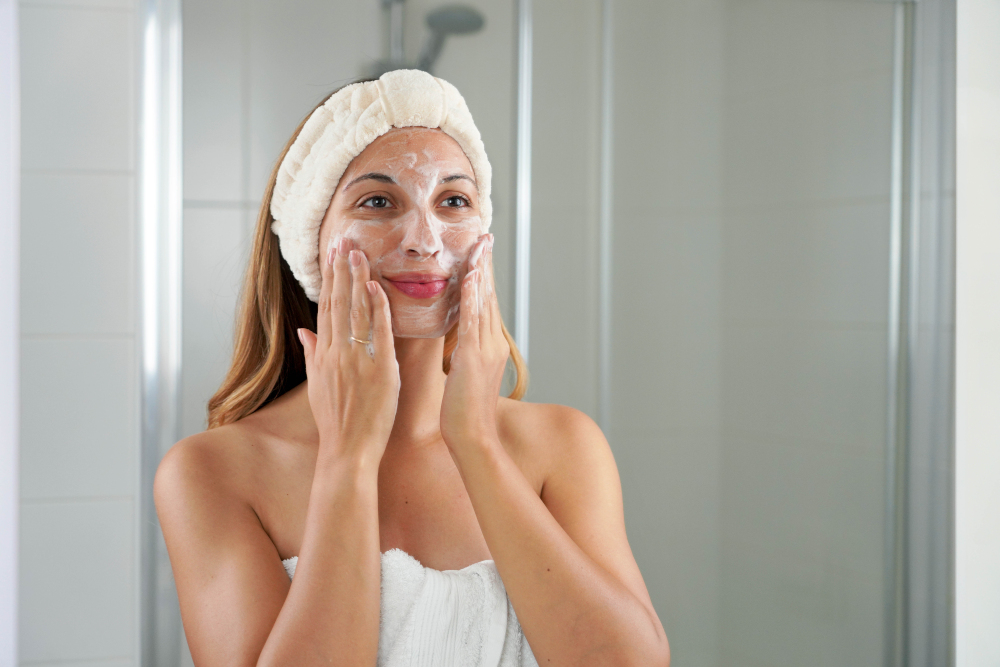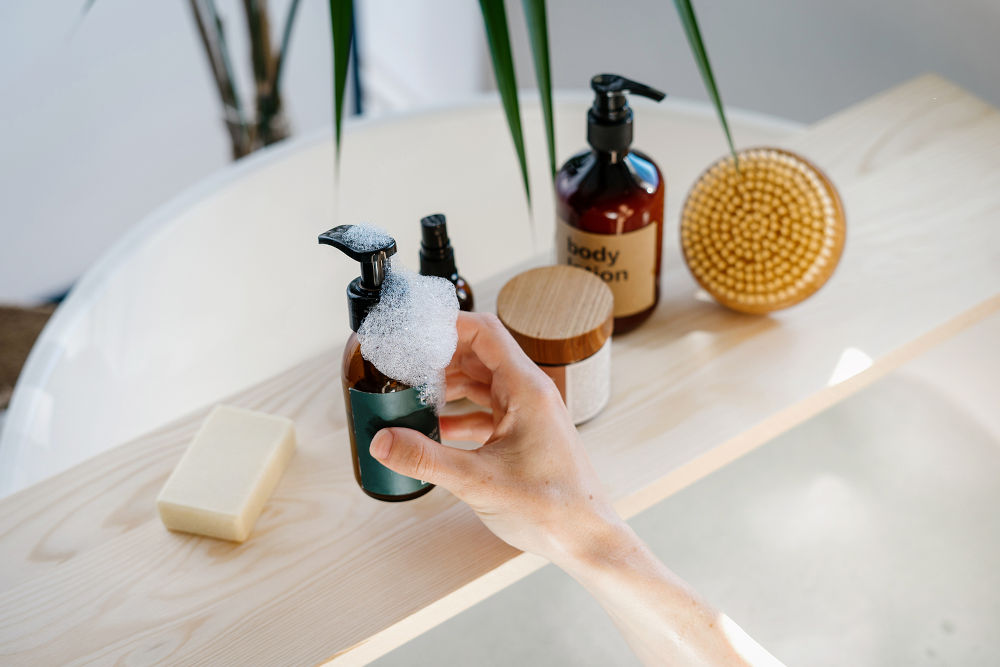Taking care of your skin is important, and that includes both daytime and night-time skincare routines. We’re sure you’ve got your morning skincare routine down to a T, but what about before bed? Martin Seeley, sleep expert and CEO of Mattressnextday, shares his five expert tips to help you get healthy, glowing skin in no time.
Do your skincare at least half an hour before bed
Skincare products such as moisturisers, serums, and creams contain active ingredients that need time to be absorbed by the skin to work effectively. Allowing time for these products to sink into the skin will ensure that you get the maximum benefit from them. Furthermore, if you go to bed immediately after applying skincare products, they may transfer onto your pillowcase or sheets, which can reduce their effectiveness and potentially cause skin irritation.
Your skin needs time to absorb the skincare products you apply. If you apply products and then immediately go to bed, you may not be giving your skin enough time to fully absorb the products, which can reduce their effectiveness.

Always brush your teeth before you wash your face
Dermatologists and dentists both recommend you always brush your teeth before you wash your face. This will prevent the transfer of bacteria from your mouth to your face, as well as prevent drying your skin out.
When you brush your teeth, you are removing bacteria, plaque, and food particles from your mouth. No matter how hard you try, it’s likely that this bacteria will find its way onto your face, which will counteract any skin care you’ve just done. Toothpaste can contain ingredients that may irritate or dry out your skin, so by washing your face after brushing your teeth, you can help to remove any residue from the toothpaste that may have gotten on your face, reducing the risk of dryness.
Use products with active ingredients like retinol
Retinol at night is effective because it helps minimise photosensitivity, improves skin cell turnover, enhances absorption, and reduces the risk of irritation. It’s important to note that retinol can be drying and irritating for some people, so it’s recommended to start with a low concentration and gradually increase it over time to avoid irritation. It’s also important to use sunscreen during the day to protect your skin from sun damage.

Wash your pillowcases two to three times a week
Washing your pillow cases regularly can help maintain good skin hygiene and prevent the build-up of impurities that can harm your skin. Pillowcases can collect bacteria, oil, and dead skin cells from your face and hair, which can lead to clogged pores and breakouts. Washing your pillow cases regularly can help remove these.
Dirty pillow cases can also harbour allergens and irritants that can cause skin irritation or exacerbate existing skin conditions like eczema or psoriasis. Your face is in contact with your pillowcase for several hours each night, which can lead to the transfer of bacteria and oils onto your skin. As a general rule you should be changing your bedding once a week, once a fortnight at the least to ensure you are not transferring any dirt and oils onto your skin.
Try ‘slugging’, the viral TikTok trend
‘Slugging‘ is a term used in skincare to describe the practice of applying a thick layer of occlusive moisturiser or oil to the skin, creating a ‘barrier’ that locks in moisture and prevents trans-epidermal water loss (TEWL). This practice is often done at night because the skin naturally repairs and regenerates itself while we sleep.
Slugging creates a barrier that locks in moisture, preventing it from evaporating from the skin and helping to keep the skin hydrated and plump. The occlusive layer created by slugging helps to protect the skin’s natural barrier function. This can be especially beneficial for people with dry or sensitive skin, as a compromised barrier can lead to inflammation, irritation, and dehydration.






















